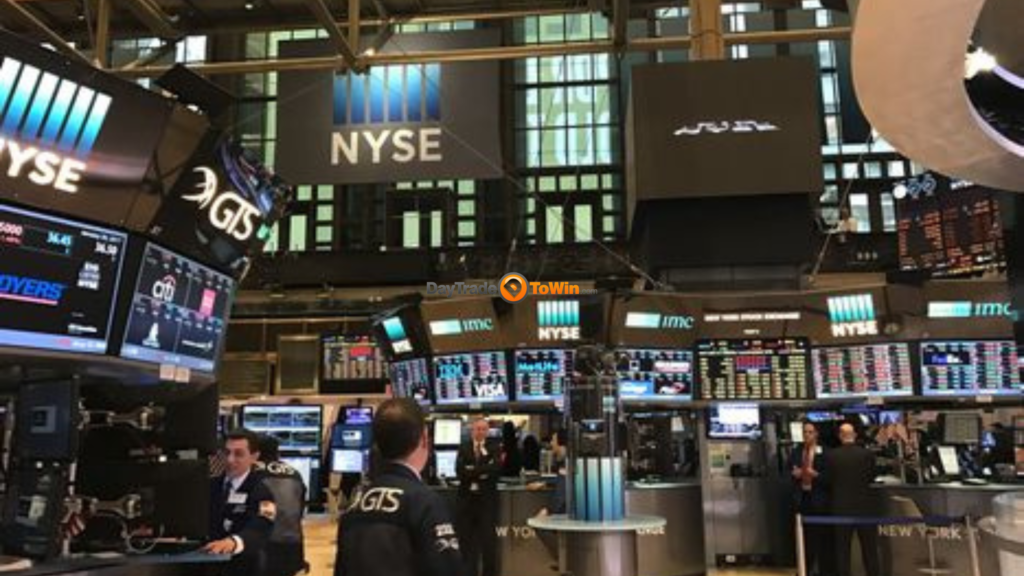At the end of the week, Wall Street ended its third consecutive week of growth without much fanfare. Stocks continued to steadily increase their already substantial gains for the month of November.
The S&P 500 increased by 5.78 points, equivalent to 0.1%, reaching a level close to its highest point in three months. The Dow Jones Industrial Average slightly rose by 1.81 points, less than 0.1%, to 34,947.28, while the Nasdaq composite saw a gain of 11.81 points, or 0.1%, reaching 14,125.48.
A number of retail businesses experienced significant growth after announcing quarterly results that exceeded analysts’ expectations. Gap’s stock price soared by 30.6% when it reported a much larger profit than anticipated by Wall Street, marking a year-to-date increase that is more than double its previous gains. Similarly, Ross Stores saw a 7.2% climb in its stock price after reporting stronger-than-expected profit and revenue figures.

BJ’s Wholesale Club experienced a downfall, declining by 4.8% despite surpassing anticipated results. Analysts attributed this to an underlying sales figure that excludes the influence of new store openings, and unfortunately, it did not meet expectations.
Retailers are concluding a summer earnings reporting season that has exceeded expectations. FactSet reports that companies in the S&P 500 are set to announce their first overall growth in a year.
However, the main reason that stocks increased significantly this week is due to the belief that inflation has decreased enough for the Federal Reserve to stop raising interest rates, which have been negatively affecting the market.
In an effort to manage inflation without triggering a severe economic downturn, the Federal Reserve has recently increased its primary interest rate to its highest point since 2001. This move aims to moderate the economy and minimize the impact on financial markets.
A recent Tuesday report revealed that consumer inflation was lower than anticipated last month. This news sparked optimism that the Federal Reserve could successfully manage to find a balance. Further readings strengthened this optimism by indicating that both inflation and the overall economy might be slowing down.
Currently, traders are attempting to speculate on when the Federal Reserve might start reducing interest rates. This action can boost investment prices and provide a lifeline to the financial system. Despite the Federal Reserve’s intention to maintain high-interest rates for an extended period to ensure a definitive victory over inflation, traders are contemplating the possibility of rate cuts commencing in the summer of 2024.
In the past few weeks, there has been a decrease in one concern regarding inflation. The price of oil has significantly dropped due to concerns about an imbalance between an excessive amount of crude oil available and insufficient demand for it.
On Friday, a barrel of American crude oil for December delivery increased by $2.99, reaching a settlement price of $75.89. This increase helped the price recover some significant losses it faced earlier in the week. However, it is important to note that the price is still considerably lower than its previous high of $93 in late September.
On Friday, the price of Brent crude, which is the global benchmark, increased by $3.19, reaching $80.61 per barrel.
The yield on the 10-year Treasury in the bond market decreased slightly from 4.44% to 4.43% on Thursday. A few weeks ago, it was even higher at 5%, marking the highest level since 2007, negatively affecting stock and other investment prices.
Naturally, if Treasury yields decrease drastically and stock prices rise significantly, it could negatively impact Wall Street. Following the Federal Reserve’s latest interest rate meeting, Chair Jerome Powell mentioned that they might not continue raising rates if the previous increase in Treasury yields and decrease in stock prices during the summer persisted. This is due to the possibility that these pressures could function as alternatives to further rate hikes.
Ever since then, the profits have decreased significantly, and it seems that November is set to become the most successful month for the S&P 500 in the past year. As per economists from Deutsche Bank, all of this indicates that the financial circumstances have relaxed by approximately fifty percent, compared to the restrictions observed in October.
However, Justin Weidner and other economists believe the Federal Reserve can be less worried about this easing due to recent positive reports on inflation and the economy.
Hong Kong’s Hang Seng experienced a significant decline of 2.1% in international stock markets. The shares of Alibaba, a prominent Chinese e-commerce company, also dropped after it canceled its cloud computing unit’s spin-off plan. The company mentioned that this cancellation was due to the uncertainties generated by the U.S. chip limitations.
In other parts of Asia, stock indexes had varying performances, whereas in Europe, they experienced a more significant increase.




